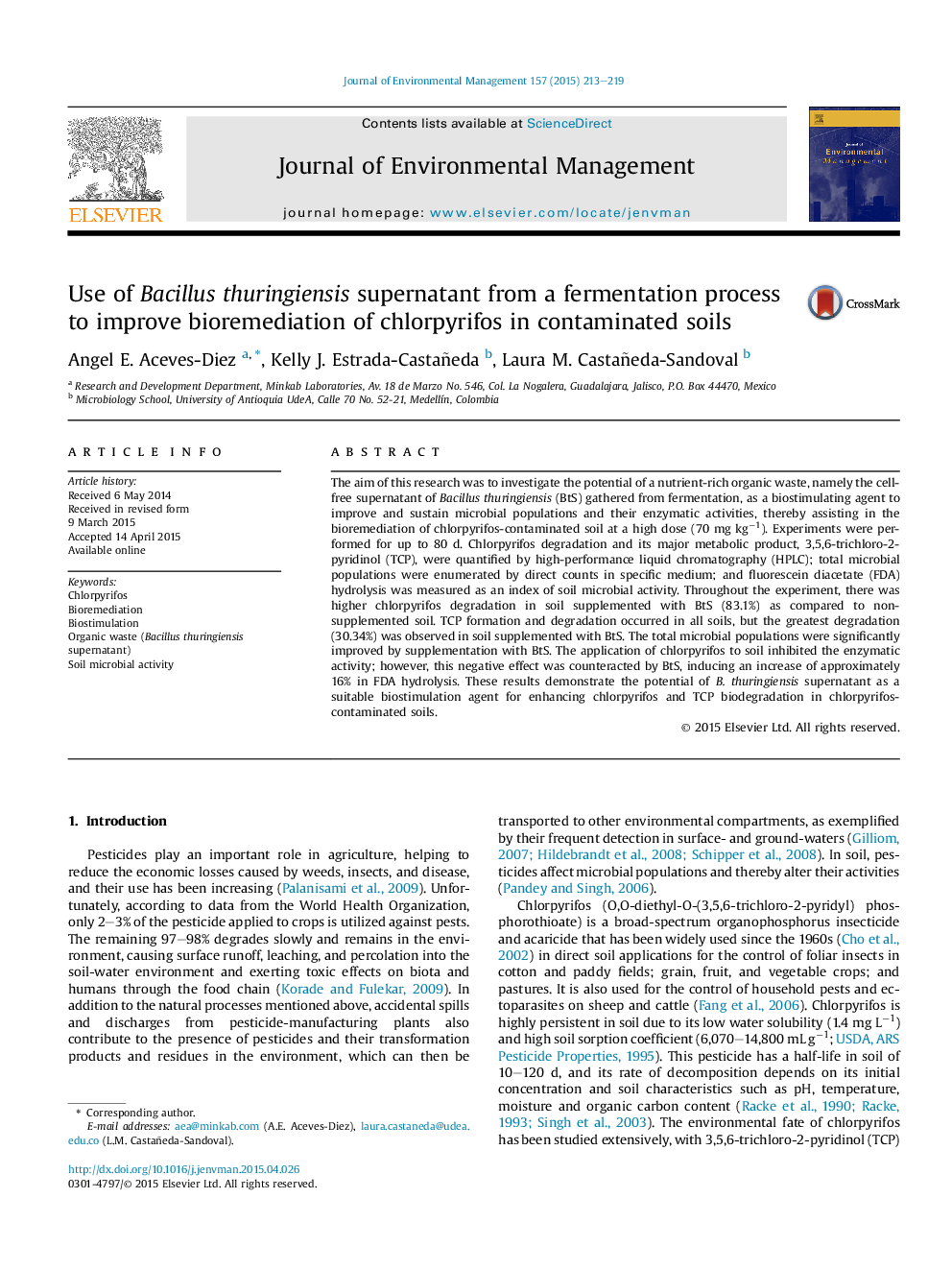| Article ID | Journal | Published Year | Pages | File Type |
|---|---|---|---|---|
| 7482242 | Journal of Environmental Management | 2015 | 7 Pages |
Abstract
The aim of this research was to investigate the potential of a nutrient-rich organic waste, namely the cell-free supernatant of Bacillus thuringiensis (BtS) gathered from fermentation, as a biostimulating agent to improve and sustain microbial populations and their enzymatic activities, thereby assisting in the bioremediation of chlorpyrifos-contaminated soil at a high dose (70 mg kgâ1). Experiments were performed for up to 80 d. Chlorpyrifos degradation and its major metabolic product, 3,5,6-trichloro-2-pyridinol (TCP), were quantified by high-performance liquid chromatography (HPLC); total microbial populations were enumerated by direct counts in specific medium; and fluorescein diacetate (FDA) hydrolysis was measured as an index of soil microbial activity. Throughout the experiment, there was higher chlorpyrifos degradation in soil supplemented with BtS (83.1%) as compared to non-supplemented soil. TCP formation and degradation occurred in all soils, but the greatest degradation (30.34%) was observed in soil supplemented with BtS. The total microbial populations were significantly improved by supplementation with BtS. The application of chlorpyrifos to soil inhibited the enzymatic activity; however, this negative effect was counteracted by BtS, inducing an increase of approximately 16% in FDA hydrolysis. These results demonstrate the potential of B. thuringiensis supernatant as a suitable biostimulation agent for enhancing chlorpyrifos and TCP biodegradation in chlorpyrifos-contaminated soils.
Related Topics
Physical Sciences and Engineering
Energy
Renewable Energy, Sustainability and the Environment
Authors
Angel E. Aceves-Diez, Kelly J. Estrada-Castañeda, Laura M. Castañeda-Sandoval,
